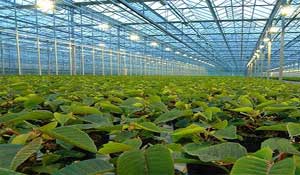
FAO in the Islamic Republic of Iran
FAO retains a comparative advantage in the provision of policy and technical assistance in a broad range of disciplines addressing the challenges being faced by the Islamic Republic of Iran in sectors pertaining to the Organization’s mandate.
In line with the realization of a “Food Secure Iran, Safeguarding Its Natural Resources” as the ultimate vision of FAO in the country, the Organization supports the country’s priorities as stipulated in the national development planning documents, including the Sixth National Development Plan 2017-2021, and in alignment with the Organization’s Strategic Objectives and relevant Regional Initiatives.
Over the next five years, the FAOIR team will be working with the national counterparts, taking a programmatic approach that calls for development of Integrated Strategic Programmes, in line with FAOIR’s long term mission seeking “to inspire and engage partners in promoting lasting solutions for sustainable development” as its local mission in four areas of
i) Sustainable and Climate-smart Agriculture,
ii) Food Security and Food Safety,
iii) Inclusive and Resilient Rural Development, and
iv) Knowledge-based Economy and Society.
140K Hectares Dedicated to Organic Farming
An official with Iran’s Ministry of Agriculture says close to 140,000 hectares of land have been dedicated to the production of organic food on a par with European standards. “Consumers need to know that organic food costs more to produce than non-organic crops, so it is generally more expensive than intensively-farmed food,” Abbas Keshavarzi added. Organic farming practices are designed to encourage soil and water conservation and reduce pollution. Farmers who grow organic produce don’t use conventional methods to fertilize and control weeds. Examples of organic farming practices include using natural fertilizers to feed soil and plants, and using crop rotation or mulch to manage weeds. Noting that the central and southern regions of the country have great potential for growing organic crops, Keshavarzi said low demand and lack of advanced supervision are the main problems in this agricultural subsector.
The official made the statements during the opening ceremony of the Sixth International Exhibition of Agricultural, Organic, Health and Natural Products Technology held at Tehran’s International Permanent Fairground last week.
